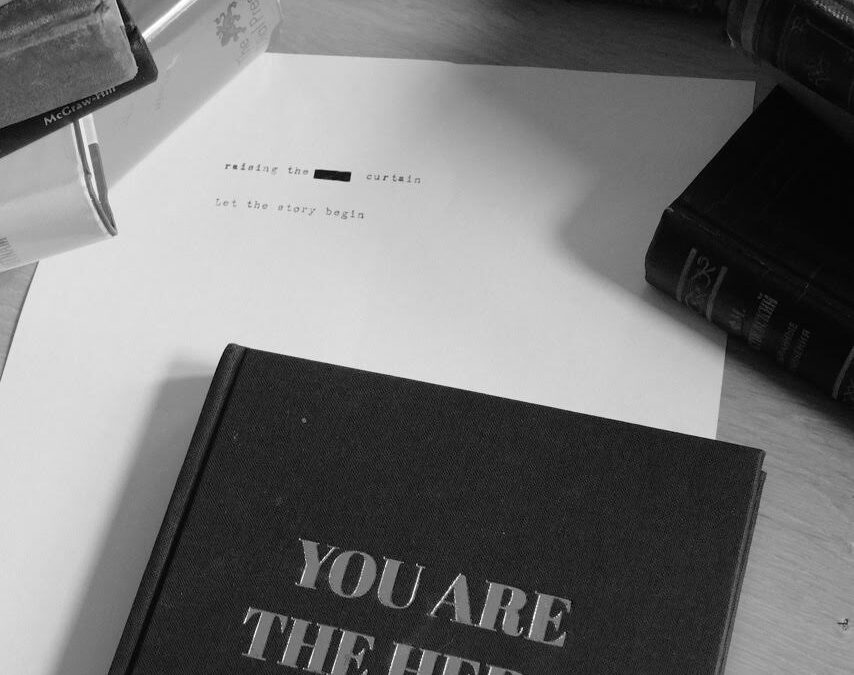
by Natalia Timmerman Blotskaya | Nov 18, 2022 | Writer’s journey
Walking down the creative writing path as a mature student calls for a rational response to a field of literature that I have long neglected—poetry, even though—What is the point of poetry if I am writing prose?—played like a looping record in my mind.
Memorising and reciting the poems of many Russian and Soviet poets in the Soviet school I once attended, was a mechanical act of obedience. Prose and poetry analysis, like everything else, was conducted through the ideological prism. When I disavowed ideology, Mayakovsky’s Soviet citizen poems still rang in my ears. And ever since, poetry remained an undecipherable realm of literature for me, even though I loved it for its performative and artistic appeals, especially when pontificated along the axes of social, cultural and literary referencing.
Now, in the formal setting of the university programme, the assertive brutality of inferencing and the aural appeal of succinct and packed-with-meaning splendour had me in awe with some poems, while others left me in tatters of bewilderment. Regardless of the underlying complexities of this genre, here are three personal takeaways from my beginner’s encounter with poetry.
- Finding anchoring imagery in poetry isn’t that different from that of prose.
You scout the landscape of your imagination for the right and fitting description of the selected object, emotion and interaction that is conveyed through allusions and inferences. One particular exercise, ‘riddle me,’ unleashed the child in me. We were tasked to describe our favourite thing as if it were a living creature.
- Lineation in poetry could be used as an effective editing technique in prose, especially for short, word-count-sensitive pieces.
In finding poetry in prose exercise, we lineated prose. First, at a sentence-per-line level, and eventually breaking down to poetic beats—phrases and words—an ingenuous manipulation that provides a magnifying-glass clarity for wordsmithing opportunities.
- Brevity is at its finest in poetry. The economy of language is pertinent and relevant across all literary genres. Conveying profound themes in a laconic and concise manner is an invaluable skill.
There is a poet in all of us. I had to believe that going forward, surrendering to the novelty of the experience of creating new worlds of words, having no fear but a child’s curiosity, getting messy with words, and disregarding the rules while listening to that bit of your soul.
What is the point of poetry if I am writing prose? Words are like bees cross-pollinating all genres of literature; the bigger your literary prairie, the more honey is gathered.

by Natalia Timmerman Blotskaya | Sep 19, 2022 | Writer’s journey
Why writers write is the mother of all questions.
You might not have your answer at the onset of your writing journey, or your answer is in flux as your relationship with the craft evolves. Ponder gently, resolutely; ponder with intention.
Here are the three tips on finding your why.
-
Scale down
Do your search for an answer pertinent to a specific piece of writing you are currently working on—why do you want to write this? Let it germinate. Distil. Repeat with another piece of writing until it’s convincing, concise and clear.
-
Be curious
Let your favourite authors inspire you—how did they answer their big why?
For example, one of my favourite authors, Jeanette Winterson, in her memoir Why Be Happy When You Could Be Normal? said:
It’s why I am a writer—I don’t say ‘decided’ to be, or ‘became’. It was not an act of will or even conscious choice. To avoid the narrow mesh of Mrs Winterson’s story I had to be able to tell my own. Part fact part fiction is what life is. And it is always a cover story. I wrote my way out.
George Orwell intellectualized his answer in his essay Why I Write. He narrowed it down to four pillars: political purpose, historical impulse, sheer egoism and aesthetic enthusiasm.
Another one of my cherished authors Lidia Yuknavitch, in her memoir The Chronology of Water, said:
Writing, she is the fire of me. Where stories get born from that place. Where life and death happened in me. She carries me and will be the death of me.
-
Write
As mundane as it sounds, writers write. Write like there is no tomorrow, write as if your life depends on it, write till you no longer can. Write impulsively, write for self-reflection, write to make sense of that insatiable burning that urges you to write. Trust yourself, and the answer will present itself.
Happy writing!

by Natalia Timmerman Blotskaya | Jun 1, 2022 | Writer’s journey
A good place to start is by asking yourself, why do I want to tell my story? Let it be your first writing prompt. You can take a pen and a paper and welcome whatever lands on your page. Don’t overanalyse, and do not pause so that you can outrun your inner censor; let your subconscious pour. Write until you no longer can. Breathe. Take a break. Distil your why to a sentence or two, or however long feels right for you. Print it out and pin it to the wall. Read it aloud in those moments of creative struggles.
Your urge to write might be to release pain or anguish or to make sense of why events transpired in your life; you might want to assume responsibility or exempt yourself of culpability; or perhaps you are after closure or forgiveness; whatever the premise for your story writing is, it is valid. It is relevant.
Whether it is destined for a large audience or your family archives, your story matters. As Brian Greene said, “We are a species that delights in a story.” A personal narrative is a foray of stumbles and triumphs, falls and rises, disappointments and realisations. It is a universal denominator that transcends race, geography, ethnicity, and religion. Writing a personal story is as therapeutic as it is enlightening, at times gut-wrenching and arduous, but, for the most part, an enriching journey. Are you ready to begin yours?
Here are the three essential habits to fuel your storytelling pursuit.
- Read, read, and read.Do you have a favourite author, story, essay, memoir, or novel? The chances are that someone somewhere has written about a similar experience or similar circumstances or dealt with the same dilemmas. Writers read a lot. Read to learn from those who inspire you. Pay attention to what makes a particular piece of writing so appealing to you. Take notes on what you understand and what confuses you. Reading shapes your writing voice, and it also helps to identify your knowledge gaps.
- Find your tribe.Writing is a solitary activity. Seeking professional editorial feedback on those early drafts could be a costly exercise, yet constructive, merit-based criticism is paramount for your growth as a writer. Find your writing buddies by joining your local writing group or a writers’ circle. Writing workshops and courses are perfect venues to kill two birds with one stone: you bridge your knowledge gaps and network with like-minded fellow writers. Writing coaches and mentors are your more personalised alternatives.
- Write, Forest, write. There are no shortcuts to honing your craft, so keep writing regularly, persistently, and mindfully. Write with intention, free write, pick the jewels, and re-write. Repeat.
Your why is the North Star on the writing journey. Reading is your wind, your writing tribe is your sail, and writing consistently is the boat that would take you to places of wonder: smooth sailing, fellow storyteller.



